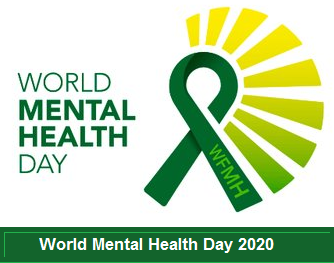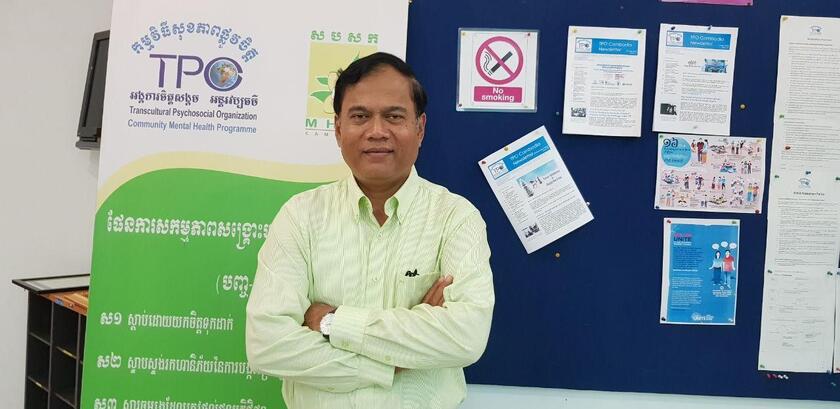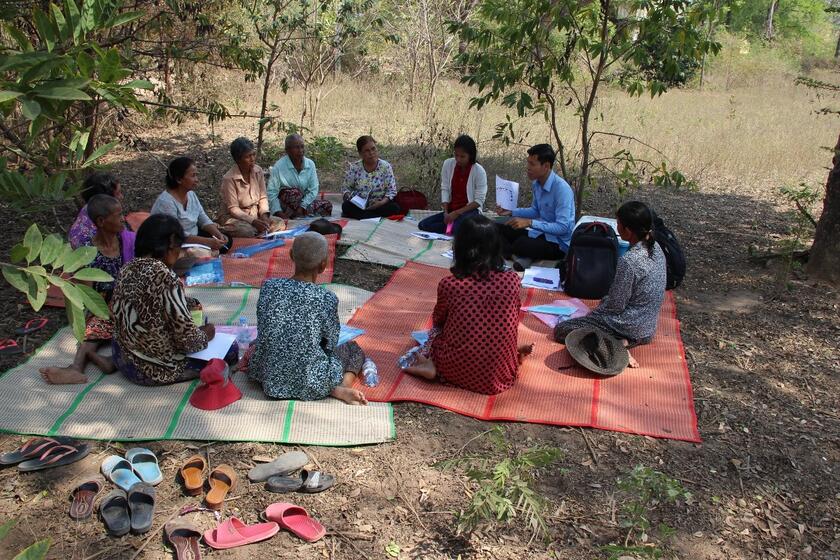There is no Health without Mental Health

On 10th of October is World Mental Health Day! The overall objective is to raise awareness of mental health issues around the world and mobilizing efforts in support of mental health.
In Cambodia, almost every fourth woman between the ages of 15 and 45 has already experienced physical, emotional or sexualized violence. Not least because of the social taboo on the subject, there are hardly any treatment options for those affected. Johanniter supports its partners Transcultural Psychosocial Organization (TPO) and Women Peace Makers (WPM) in their enormous commitment to drive change in three Cambodian provinces of Kampong Chhnang, Tbong Khmum, and Kampot. 900 women and girls, men and boys participate in self-help groups to enable them regain a level of control and sense of self-confidence. The project promotes self-directed recovery and social cohesion within existing community structures, taking into account knowledge and expertise available among target communities. The Executive Director of TPO, Mr. Sotheara Chhim, explains in an interview why this help is so important.

Why is mental health and psychosocial support so important and should not be neglected?
Mr. Chhim: WHO has stated: ´There is no health without mental health´. Furthermore, mental health and psychosocial issues interlink with every aspects of our life. In fact, the burden from mental health conditions can be far greater than the impact from other health challenges, it lasts longer and it also affects not only the life of the patients but also of family members, the community and society. Despite this great burden, investment on mental health in many countries, in particular in developing countries, is very low. Many countries allocate less than 2% of annual health budget to mental health; this is not sufficient to develop human resources in mental health as well as to create a quality of mental health services.
Why is this support needed in Cambodia?
Through decades of war, genocide and socio-political upheaval, many Cambodians in different generation have been traumatized and the mental health consequences are huge. To date, there are about 60 psychiatrists in the whole country with the population of about 15 millions people. This number is not sufficient to respond to the needs of mental health care for the people.

What did TPO achieve so far with their work?
There are increases in awareness of mental health among Cambodian public, there are more and more people who dare to talk, to express and to seek help for their own mental health issues or that of their family members. We are proud to say that we are the unique organization that has expertise in this field in Cambodia.
What are the main goals of the new project with WPM and Johanniter?
Due to the past trauma, many people are trapped in the “vicious cycle of mental health problems, violence and poverty”. Our intervention aim to break this vicious cycle. Johanniter, TPO and WPM help together the community members to improve their mental health and psychosocial status, so they are able to participate in the community activities. TPO also participate in investing on mental health by training local service providers in mental health first aid so that they will become the frontline mental health workers who can provide firsthand psychological support to the people in their community before they can be referred to mental health professionals.



